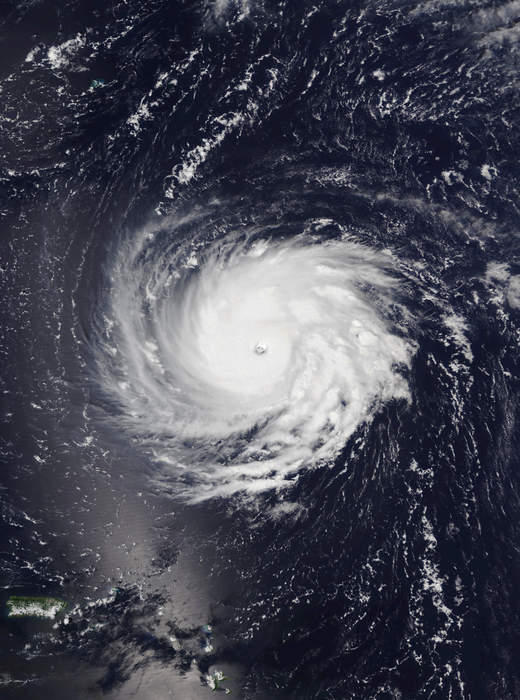Hurricane Florence
Category 4 Atlantic hurricane in 2018
Hurricane Florence ▸ Facts ▸ Comments ▸ News ▸ Videos

Hurricane Florence was a powerful and long-lived Cape Verde hurricane that caused catastrophic damage in the Carolinas in September 2018, primarily as a result of freshwater flooding due to torrential rain. The sixth named storm, third hurricane, and the first major hurricane of the 2018 Atlantic hurricane season, Florence originated from a strong tropical wave that emerged off the west coast of Africa on August 30, 2018. The wave steadily organized, and strengthened into a tropical depression on the next day near Cape Verde. Progressing along a steady west-northwest trajectory, the system gradually strengthened, acquiring tropical storm strength on September 1. An unexpected bout of rapid intensification ensued on September 4–5, culminating with Florence becoming a Category 4 major hurricane on the Saffir–Simpson scale (SSHWS), with estimated maximum sustained winds of 130 mph (215 km/h). Strong wind shear then led to rapid weakening, and Florence weakened to tropical storm strength on September 7. Shifting steering currents led to a westward turn into a more suitable environment; as a result, Florence reintensified to hurricane strength on September 9 and major hurricane status by the following day. Florence reached peak intensity on September 11, with 1-minute winds of 150 mph (240 km/h) and a minimum central pressure of 937 mbar (27.7 inHg). An unexpected eyewall replacement cycle and decreasing oceanic heat content caused a steady weakening trend; however, the storm grew in size at the same time. Early on September 14, Florence made landfall in the United States just south of Wrightsville Beach, North Carolina as a Category 1 hurricane, and weakened further as it slowly moved inland under the influence of weak steering currents. Florence degenerated into a post-tropical cyclone over West Virginia on September 17 and was absorbed by another frontal storm two days later.
| 0 shares | ShareTweetSavePostSend |
You Might Like
No news matches foundSorry, we were unable to find any results in our database for your queryFree news archive accessDid you know? You are eligible to search our news archive with millions of news references free of charge. To do this, please sign in first at the top of the screen. • Information about free access to our news archive Search this site and the web:  |
